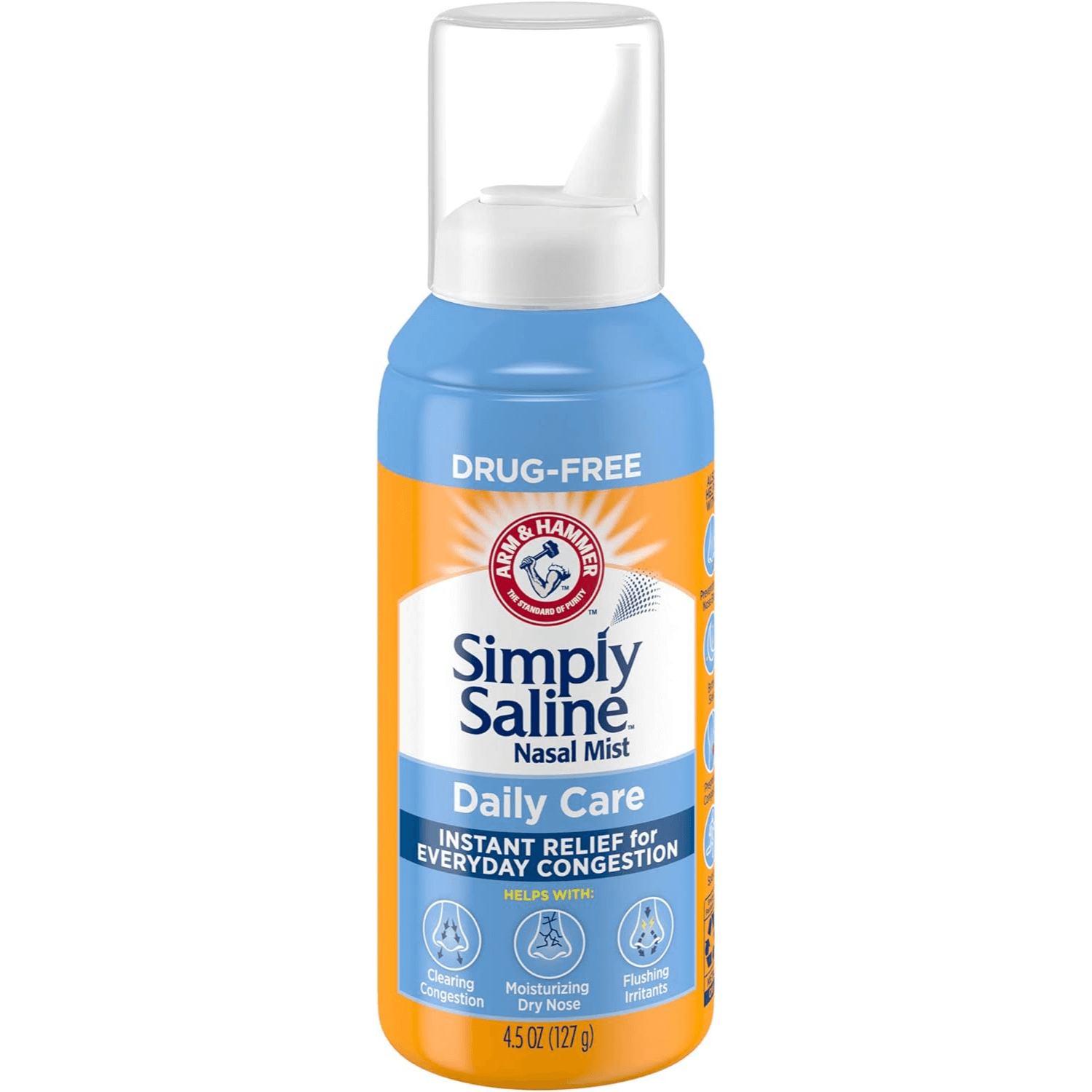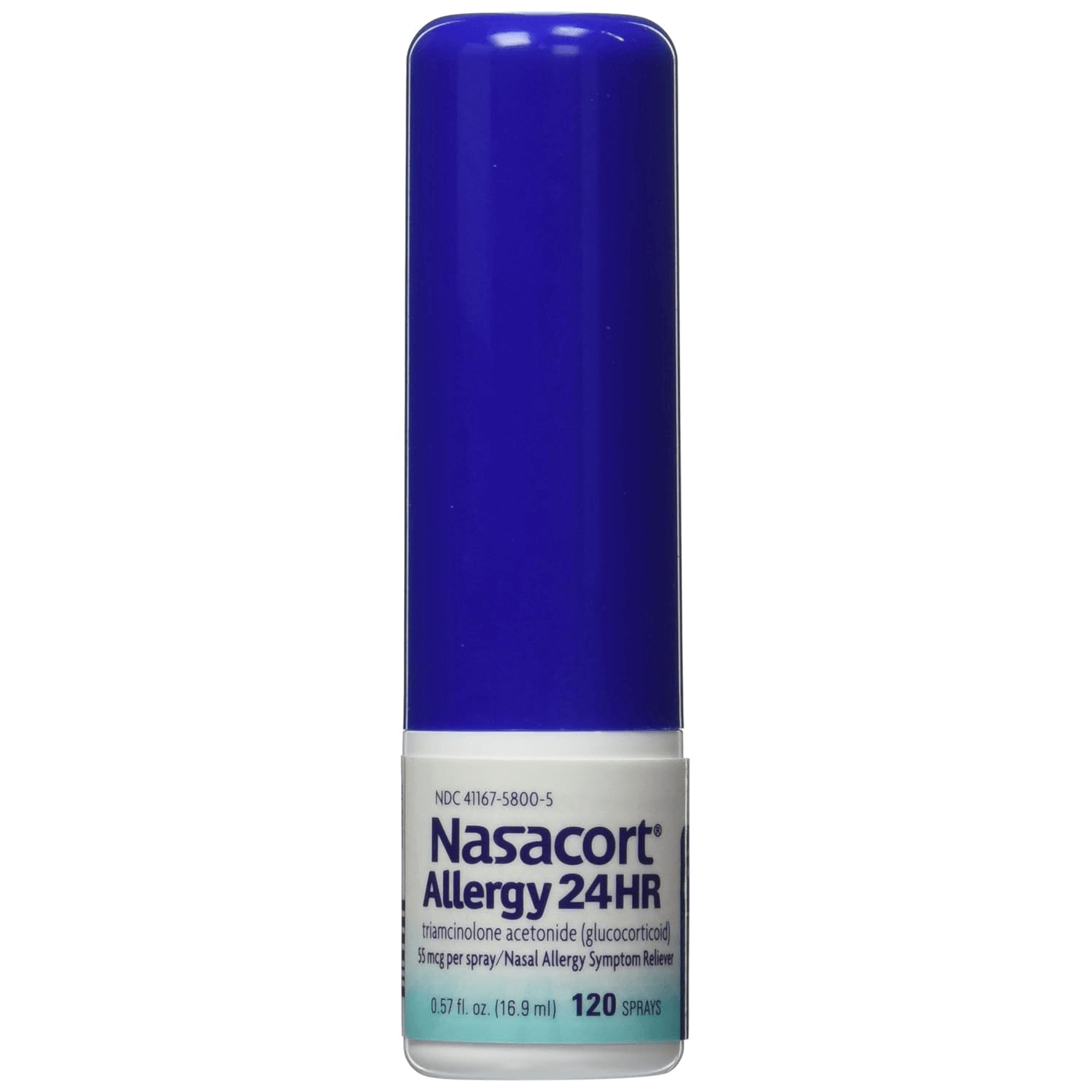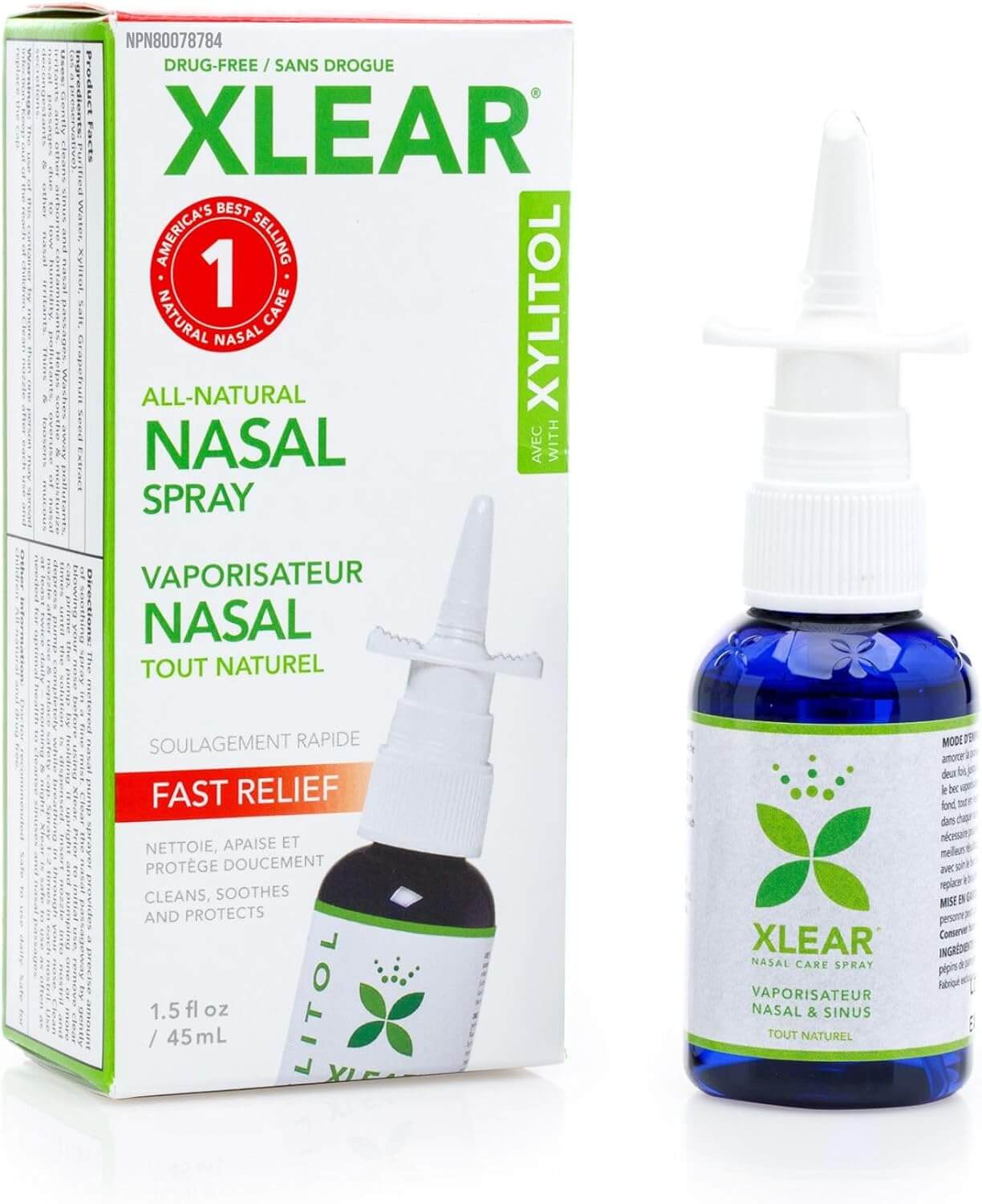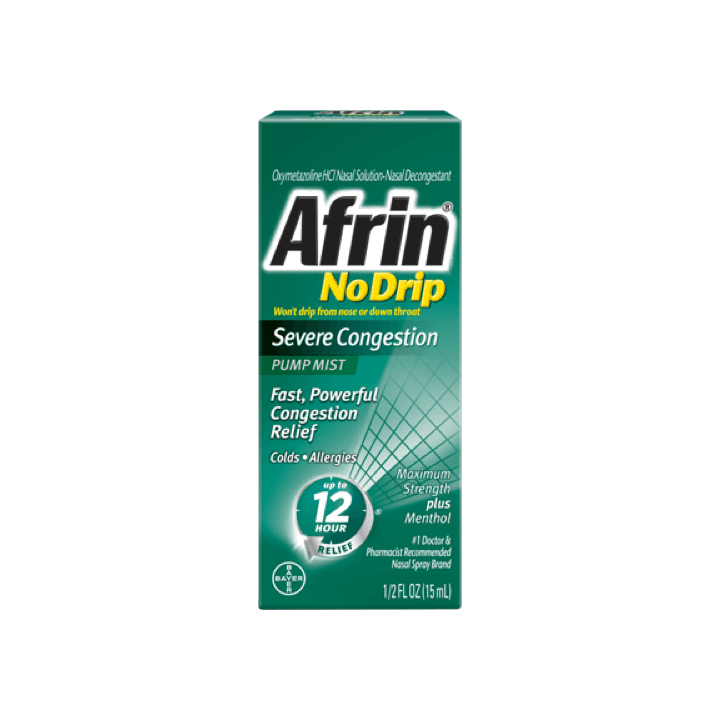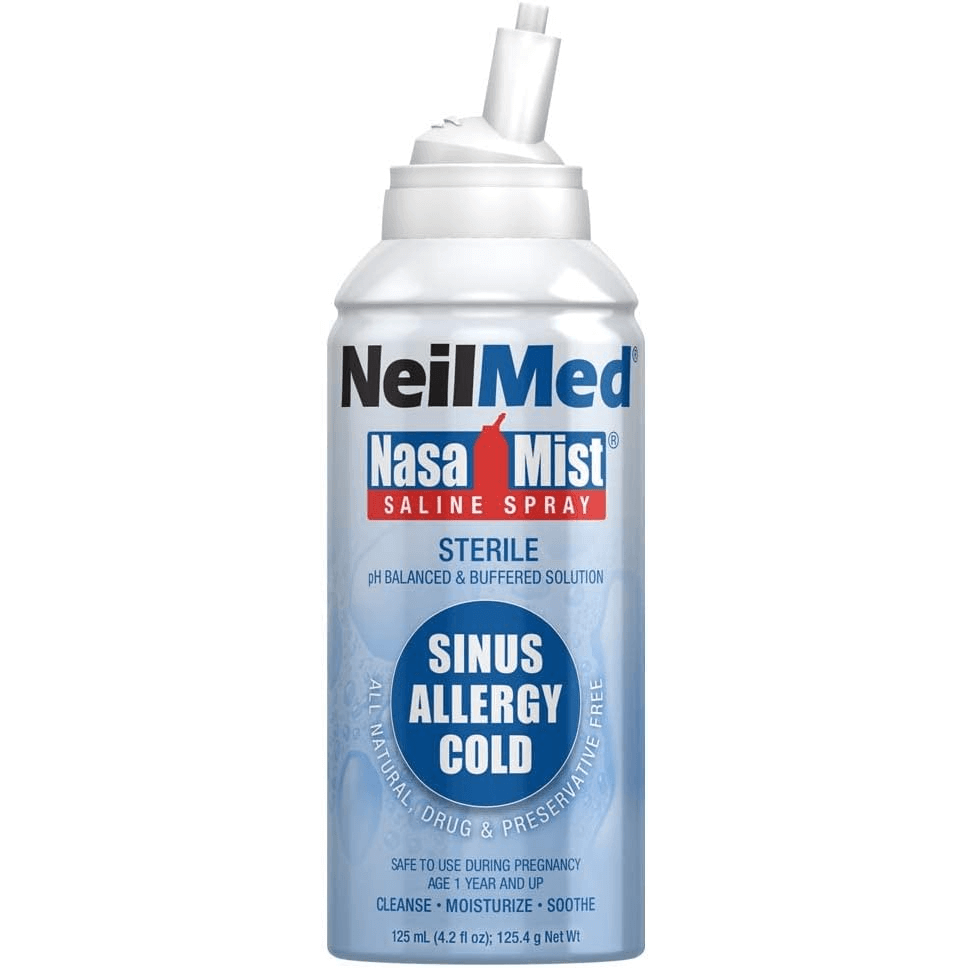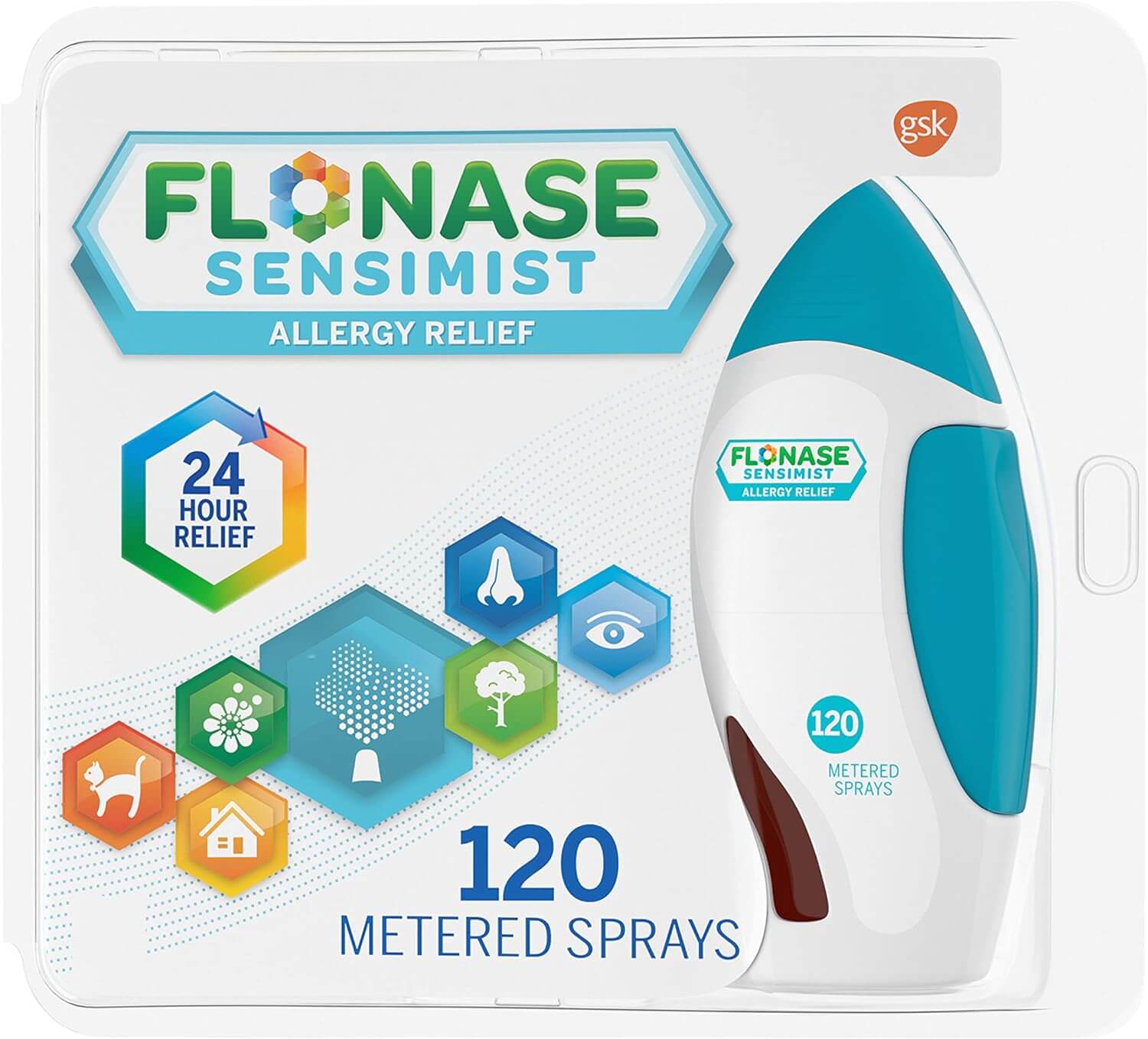Air travel can be an exhilarating experience, but it’s essential to be prepared, especially when it comes to maintaining your health and comfort. The best nasal spray for air travel is not just a luxury but a necessity for many travelers.
Whether you’re a frequent flyer or an occasional traveler, understanding the importance of flying comfort and nasal health during flights can make a significant difference in your overall travel experience.
From the dry cabin air to the rapid altitude changes, our noses go through a lot up in the skies. Let’s explore why nasal sprays are a traveler’s best friend and how they can provide relief and protection during your journeys.
Top Nasal Sprays for Air Travel
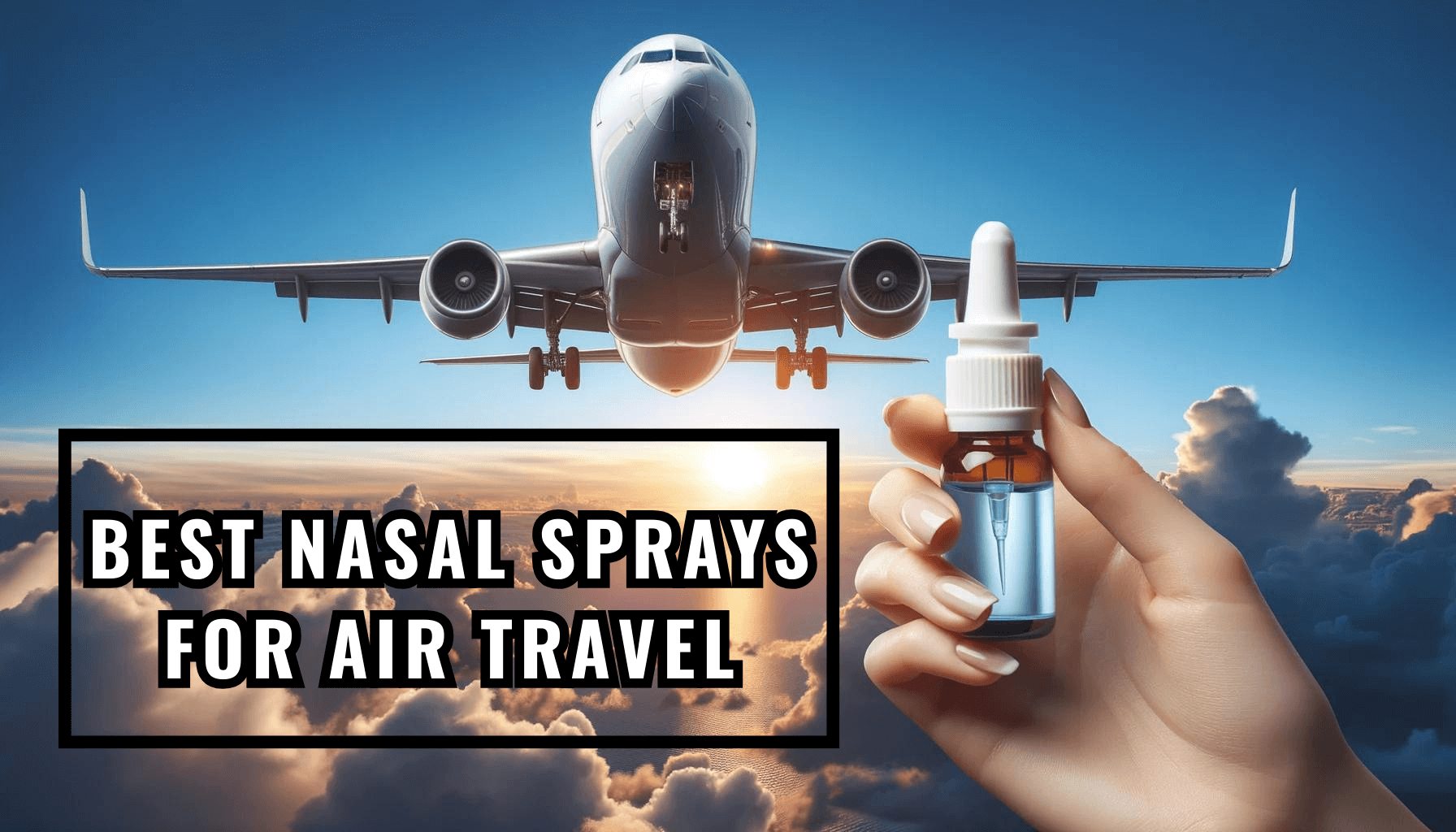
Navigating the vast array of nasal sprays can be daunting. To make the selection process easier for travelers, we’ve curated a list of top recommended nasal sprays, each catering to different needs:
Best for Hydration: Arm & Hammer Simply Saline Nasal Mist
This drug-free saline mist hydrates dry nasal passages, helping to alleviate discomfort.
Why We Recommend: It’s a gentle option for travelers, ensuring nasal passages remain moist during prolonged flights.
Best for Allergy Relief: Nasacort Allergy 24HR Nasal Spray
An OTC corticosteroid spray offering 24-hour relief from nasal congestion, sneezing, and other allergy symptoms.
Why We Recommend: A reliable choice for travelers heading to diverse climates or allergen-rich destinations.
Best Natural Option: Xlear Sinus Care Nasal Spray
A saline spray enhanced with xylitol, offering natural relief and protection for the nasal passages.
Why We Recommend: For those leaning towards a natural solution, it’s effective without relying on synthetic additives.
Best for Congestion: Afrin No Drip Severe Congestion Nasal Spray
A potent decongestant spray that quickly eases nasal congestion from colds or allergies.
Why We Recommend: Ideal for those seeking rapid relief, especially when colds strike during travels.
Best for Frequent Travelers: NeilMed NasaMist Saline Spray
A sterile saline spray that delivers a fine mist, perfect for moisturizing dry nasal passages.
Why We Recommend: Compact and gentle, it’s a must-have for those who are always on the go.
Best Multi-Action Spray: Flonase Sensimist Allergy Relief Nasal Spray
A corticosteroid nasal spray that provides powerful relief from various allergy symptoms, including nasal congestion, sneezing, runny nose, and itchy nose. Its fine mist formulation is gentle on the nasal passages.
Why We Recommend: An excellent choice for travelers who want a versatile solution, Flonase Sensimist addresses multiple allergy symptoms, ensuring a comfortable journey regardless of your destination.
While these recommendations are based on popular choices and efficacy, it’s essential to remember that individual needs may vary. Always consult with a healthcare professional before starting any new medication, and consider personal preferences, sensitivities, and specific travel requirements when making a selection. Safe travels and breathe easy!
Types of Nasal Sprays Suitable for Air Travel
With a plethora of nasal sprays available in the market, it’s crucial to understand the differences and benefits of each to make an informed choice. Here’s a breakdown of the various types of nasal sprays and their suitability for air travel:
Saline Nasal Sprays
These are simple saltwater solutions that help moisturize the nasal passages.
Benefits: Saline sprays are excellent for hydration and cleansing, removing airborne irritants that you might encounter during travel.
Usage Considerations: Being non-medicated, they’re suitable for frequent use without the risk of side effects.
Steroid Nasal Sprays
These contain corticosteroids, which reduce inflammation in the nasal passages.
Benefits: They are effective in reducing nasal inflammation and swelling, making breathing easier.
Usage Considerations: While potent, they may come with potential side effects and are usually recommended for short-term use or as prescribed by a doctor.
Antihistamine Nasal Sprays
These are designed to combat allergic reactions by blocking the action of histamine, a compound produced by the body during allergic responses.
Benefits: If you’re prone to allergies, these sprays can be a lifesaver, especially when traveling to new environments.
Usage Considerations: They offer quick relief but should be used as directed to avoid potential side effects.
Natural/Organic Nasal Sprays
Made from herbal and natural ingredients, these sprays often incorporate components like aloe vera, eucalyptus oil, or other botanical extracts.
Benefits: They provide a gentle and holistic approach to nasal care, free from synthetic chemicals.
Usage Considerations: While they’re generally safe, it’s essential to ensure you’re not allergic to any of the ingredients.
When selecting a nasal spray for air travel, consider the duration of your flight, your personal health needs, and any pre-existing conditions or allergies. The right nasal spray can make all the difference, turning a potentially uncomfortable flight into a relaxed journey.
Why Use Nasal Spray During Air Travel?
Navigating the skies comes with its set of challenges, especially for our nasal passages. The enclosed environment of an airplane exposes passengers to a unique combination of factors that can wreak havoc on our sinuses. Here’s why considering a nasal spray for your travels might be a wise choice:
Dry Cabin Air: The recycled air in airplane cabins tends to be dry, which can cause the mucous membranes in our noses to dry out. This not only leads to discomfort but can also make us more susceptible to airborne germs.
Prevention Over Cure: Nasal congestion and discomfort can be a traveler’s nightmare, especially on long-haul flights. Using a nasal spray can preemptively alleviate these symptoms, ensuring a more pleasant journey.
Defense Against Germs: Airports and airplanes are hubs for international travelers, making them melting pots of germs and bacteria. A moist nasal passage is the body’s first line of defense against these pathogens. Nasal sprays help maintain this protective barrier.
Counteracting Allergens: Different environments mean exposure to various allergens. For those with allergies, a nasal spray can provide relief from reactions triggered by unfamiliar airborne substances.
Just like learning to use compression socks or travel pillows, incorporating a nasal spray into your travel routine can be a game-changer, turning potential discomforts into a breeze. As we journey further, we’ll explore the different types of nasal sprays and how to choose the best one for your travel needs.
Tips for Overall Nasal Health During Air Travel
Traveling by air can be exhilarating, but it can also be tough on your nasal passages due to the dry cabin air and changing altitudes. Here are some tips to ensure your nasal health remains in top condition during your flights:
Stay Hydrated
Drink plenty of water before, during, and after your flight. Staying hydrated helps keep your mucous membranes moist, reducing the chances of dryness and irritation in your nasal passages.
Avoid Alcohol and Caffeine
While it might be tempting to have a drink or coffee on the plane, both alcohol and caffeine can dehydrate you. If you do indulge, compensate by drinking extra water.
Practice Good Hygiene
Airplanes are public spaces, and germs can easily spread. Always wash your hands before touching your face and nose. Consider carrying antibacterial wipes to clean your hands and the area around your seat.
Use a Nasal Barrier Cream
There are over-the-counter barrier creams available that you can apply inside your nostrils. These creams trap pollutants and allergens, preventing them from causing irritation.
Breathe Through Your Nose
Your nose is designed to filter and humidify the air you breathe. Make a conscious effort to breathe through your nose rather than your mouth, especially when sleeping on the plane.
Stay Active During the Flight
Take occasional walks up and down the aisles when it’s safe to do so. This helps in improving circulation and can prevent the nasal passages from becoming too dry.
Consider Using a Humidifier at Your Destination
If you’re staying in a hotel or a place with dry air, using a portable humidifier can help maintain optimal humidity levels, benefiting your nasal health.
Avoid Allergens
If you’re allergic to pollen, dust, or other common allergens, ensure you’re taking your allergy medications as prescribed. Additionally, avoid areas with high allergen levels, especially after landing.
Rest Well Before the Flight
A good night’s sleep can bolster your immune system, making you less susceptible to nasal irritations and infections.
Remember, while these tips are beneficial for most travelers, individual needs may vary. Always listen to your body and consider consulting with a healthcare professional if you have specific concerns about your nasal health during air travel. Safe and comfortable journeys to you!
FAQs: Nasal Health and Air Travel
Q: How often can I use saline nasal sprays during a flight?
A: Saline nasal sprays are generally safe to use as often as needed since they only contain saltwater. However, always follow the instructions on the product label or consult with a healthcare professional if unsure.
Q: I’m prone to nosebleeds, especially during flights. What can I do to prevent them?
- A: Keeping the nasal passages moist can help. Use a saline spray, apply a nasal barrier cream, and drink plenty of water. If you’re frequently experiencing nosebleeds, it’s essential to consult with a doctor before your travels.
Q: Can I use decongestant nasal sprays throughout my trip?
- A: While decongestant sprays provide quick relief, they should not be used for more than 3 consecutive days, as they can lead to rebound congestion. Always use them as directed and opt for saline sprays for more extended use.
Q: How can I protect my nasal health when traveling to a place with high pollution?
- A: Consider using a nasal barrier cream to trap pollutants. Wearing a mask, especially in heavily polluted areas, and staying indoors during peak pollution times can also help.
Q: Are there any natural remedies for nasal dryness during flights?
- A: Yes, saline sprays are a natural option. Additionally, inhaling steam from a cup of hot water or using a wet washcloth placed over the nose and mouth can provide relief.
Q: I often experience sinus pain during takeoff and landing. How can I alleviate this?
- A: This pain is due to the change in air pressure. To equalize the pressure, try swallowing, yawning, or pinching your nose and gently trying to blow out of it (Valsalva maneuver). Using a nasal spray before takeoff and landing can also help.
Q: Can I carry nasal sprays in my carry-on bag during flights?
- A: Yes, but ensure the bottle size complies with the TSA’s liquid regulations (typically 3.4 ounces or 100 milliliters). Always place it in a clear, quart-sized, zip-top plastic bag during security checks.
Q: Do I need a prescription for nasal sprays?
- A: While many nasal sprays are available over-the-counter, some, especially those containing steroids, may require a prescription. Always consult with a healthcare professional for recommendations tailored to your needs.
Remember, while these FAQs provide general advice, individual experiences may vary. Always prioritize your health and well-being, and if in doubt, seek advice from a medical professional.
Whether you’re a frequent flyer or an occasional traveler, prioritizing your nasal well-being can make a world of difference in your travel experience. After all, the best nasal spray for air travel is one that not only addresses your specific needs but also enhances your overall comfort during flights.
Here’s to breathable, clear skies ahead and to making every journey a pleasant one!

